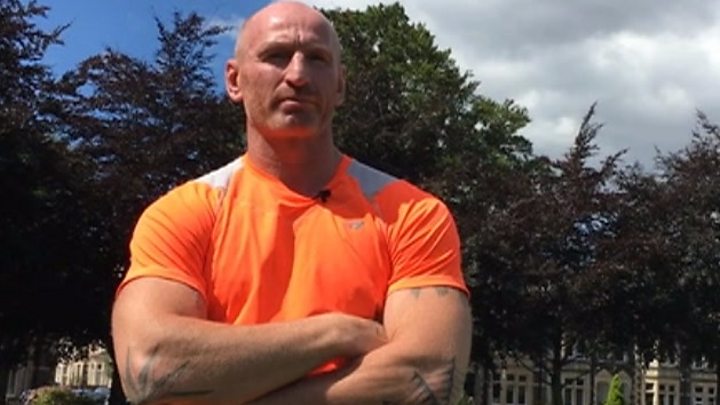
Ex-Wales rugby captain Gareth Thomas will bid for indecent and homophobic chanting at football to be illegal.
He will launch a draft bill with MP Damian Collins, chairman of the Commons culture and sport committee, to amend the 1991 Football Offences Act.
The amendment would make chanting or gesturing of an indecent nature which refers to sexual orientation or gender identity against the law.
Thomas made 100 appearances for Wales and came out as gay in December 2009.
He has previously spoken of his battle with his sexuality and how he came close to suicide after his wife left him three months after he came out.
Thomas, who played for Cardiff Blues, Bridgend and Toulouse in rugby union as well as Crusaders in the Super League, revealed that he hid his sexuality from everyone - until admitting his secret to his wife.
He told BBC Wales in 2014: "My career life was very public, but behind what happened on television and wearing my Wales rugby jersey with pride I was slowly dying.
"I'm not sure if it was because I was gay that I felt such depression, it was just that I was lying to everyone."
Thomas scored 41 tries and made three Test appearances for the British and Irish Lions, before moving to rugby league in 2010 - where he represented Wales four times - and retiring from rugby in late 2011.
Monday's launch event will take place at the Houses of Parliament before the Conservative Folkestone and Hythe MP tables the bill.
Section three of the existing act states that "it is an offence to engage or take part in chanting of an indecent or racialist nature at a designated football match".
There is a definition of "racialist" - described as "threatening, abusive or insulting to a person by reason of his colour, race, nationality (including citizenship) or ethnic or national origins".
But there is no definition of what is "indecent", so determining whether something is indecent is considered on a case-by-case basis.
In 2017 Thomas presented a BBC documentary called Gareth Thomas v Homophobia, Hate in the Beautiful Game, focusing on institutionalised homophobia in football.
The culture and sport committee in the same year published its report into tackling homophobia in sport.